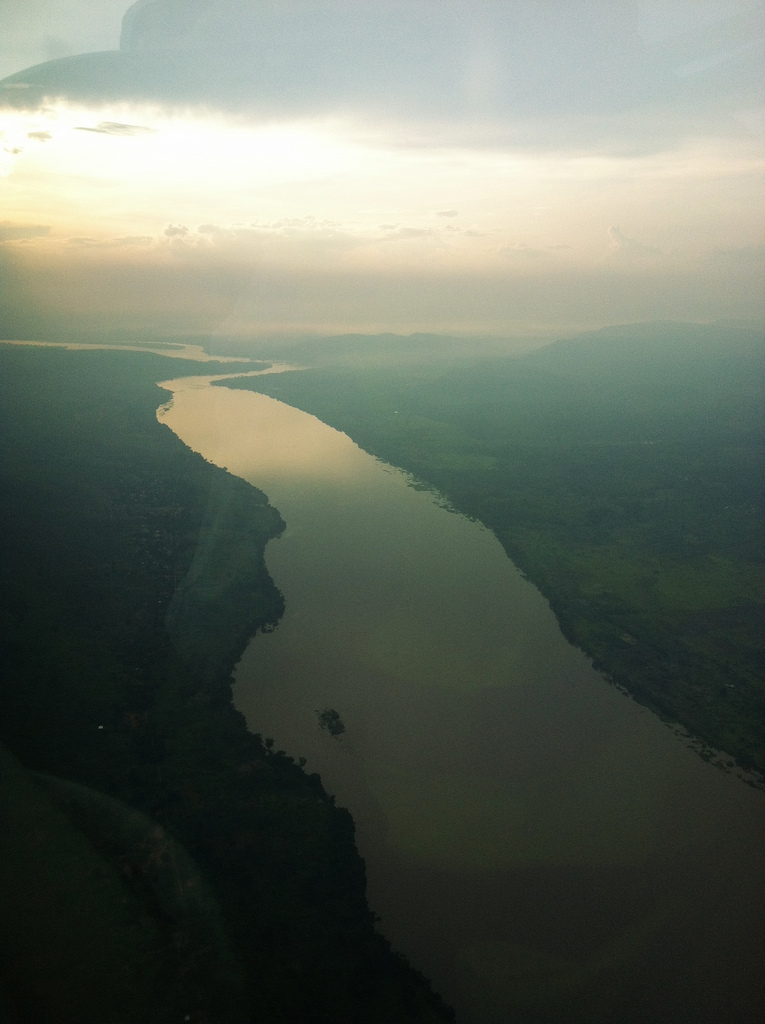
Executive Summary
A growing body of evidence indicates that from 2009 until at least early 2013 the Ugandan Lord's Resistance Army (LRA) rebel group has periodically operated in the Kafia Kingi enclave, one of the disputed areas on the border between Sudan and South Sudan. The enclave is currently controlled by Sudan, and numerous eyewitness reports indicate that elements of the Sudan Armed Forces (SAF) in Kafia Kingi have actively sheltered senior LRA commanders there and provided them with limited material support.
According to LRA defectors and other sources, LRA leader Joseph Kony himself first traveled to the Kafia Kingi enclave in 2010. He returned to Kafia Kingi in 2011 and was present there throughout parts of 2012. Along with other senior LRA commanders, he found safe harbor in a series of semipermanent encampments on the banks of the Umbelasha River near the SAF barracks in Dafak. During that time, Kony continued to direct LRA attacks against civilians in neighboring countries and issue new orders for LRA fighters. The LRA abandoned the camps in early 2013 but may remain active in the enclave.
Sudan's harboring of the LRA in the Kafia Kingi enclave was the latest upswing in a cycle of opportunistic collaboration between the two parties that dates back to 1994. The military training, safe haven, weapons, and supplies the Sudanese government provided to the LRA were critical to the group's growth into an increasingly deadly rebel force. By 2004, Sudanese support had waned, leading to a period of prolonged disengagement before the LRA reestablished contact with the SAF in Kafia Kingi in 2009.
The LRA's ability to operate in Kafia Kingi with Sudanese support poses a severe threat to regional and international efforts to defeat the rebel group. Ugandan-led forces authorized by the African Union (AU) and assisted by military advisers from the United States (US) to pursue the LRA do not have permission to enter Kafia Kingi. So long as Sudan permits it, the small enclave can serve as a periodic safe haven for Kony and other senior LRA officers.
Recent political upheaval in the Central African Republic (CAR), where rebels overthrew the previous government, has further destabilized the northeastern region of the country that borders Kafia Kingi and has made the enclave even more attractive for LRA commanders adept at exploiting ungoverned spaces.
This dynamic jeopardizes progress made in the past twelve months against the LRA, which includes a spike in LRA combatant defections and the capture or killing of two senior LRA commanders in CAR. Unless addressed, it will also enable LRA leaders to outlast current counter-LRA operations. Though international diplomats and military officials working to stop LRA attacks privately acknowledge recent LRA movement in Kafia Kingi, they have not adopted realistic strategies to prevent further support from Sudan to Kony's forces.
In the absence of effective diplomacy, Sudanese government officials have refused to cooperate fully with regional counter-LRA initiatives and have denied allegations of the LRA's presence in Kafia Kingi with impunity. Sudan, however, may not be as invested in its relationship with the LRA as it once was. No evidence has emerged showing that the SAF's recentsupport to the LRA included significant new arms or that Sudanese officials have actively sought to employ the group again as a proxy force to destabilize South Sudan.
The LRA's recent departure from its established camps in Kafia Kingi provides international diplomats with an opportunity to convince the Sudanese government to definitively end its decades-long collaboration with the LRA. The AU, which launched an initiative to facilitate regional cooperation to combat the LRA in November 2011 and is mediating ongoing negotiations between Sudan and South Sudan, is best positioned to lead an international effort to press Sudan to fully cooperate with regional counter-LRA efforts. AU officials should work with the United Nations (UN) and governments of other LRA-affected countries to forge a common diplomatic strategy aimed at preventing further support from Sudan to the LRA and securing Sudan's cooperation to apprehend Kony and other LRA members who may still be active in Sudanese-controlled territory.

